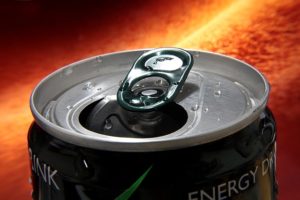Pediatric Dentist in Pelham
 Athletes often drink sports drinks during exercise, so it can be easy to believe that these drinks provide important nutrients to help keep you healthy and active. Young adults frequently consume energy drinks to help them stay awake and active for school, work, or play. However, both sports drinks and energy drinks can have profoundly negative impacts on your teeth and your health.
Athletes often drink sports drinks during exercise, so it can be easy to believe that these drinks provide important nutrients to help keep you healthy and active. Young adults frequently consume energy drinks to help them stay awake and active for school, work, or play. However, both sports drinks and energy drinks can have profoundly negative impacts on your teeth and your health.
With so many different beverages on the market, it can be difficult to know what classifies a one as a sports drink or energy drink.
Sports drinks, like Gatorade and similar products, were originally created for high-performing athletes. They provide sugar for quick energy and sodium and electrolytes to help stave off dehydration that can occur with intense physical activity. This can be highly useful in the short term, but do not provide any significant health benefit outside this very narrow window of intended use. Even highly active adults are better served by drinking water instead of sugary, acidic sports drinks.
Energy drinks are beverages which generally contain higher levels of caffeine than other sodas. Popular brands such as Monster, Red Bull, and Rockstar fall into this category. Energy drinks can lead to increased heart rate and stress on the nervous system. This makes them potentially dangerous in combination with exercise, particularly for those with heart conditions. In addition to the added sugars and acids they contain, Caffeine is also a natural diuretic, so can lead to dehydration, dry mouth, and other complications
The danger to both children and adults in sports drinks and energy drinks comes not only from the sugar content but also from the acidity. These types of drinks contain a significant amount of acid that they begin destroying teeth in as little as five days. Energy and sports drinks can damage tooth enamel, increasing the risk of cavities and tooth decay. These drinks erode or thin out the enamel of the teeth, leaving them more susceptible to decay and sensitivity. Athletes drink these beverages to remain hydrated and sip them frequently during exercise. This increases the time that teeth are exposed to the acidity and high sugar content of sports drinks, leaving them vulnerable to decay.
More than one third of adolescents, or children between grades 6 and 12, drink a sports drink each week. As a comparison, nearly 15% of children in the same age group drink at least one energy drink each week. Considering their widespread and growing consumption, it is important to take notice on the negative effects these drinks can have on teeth.
While sports drinks and energy drinks can be an alternative to water, there are ways to promote great oral health. The best way to promote oral health is to keep yourself hydrated with water to prevent the negative effects that sports and energy drinks bring. If you feel that you must use sports drinks, rinse your mouth with water afterwards and avoid brushing your teeth right after you have consumed a sports drink. Also, read the ingredient labels before you consume drinks. Avoid high amounts of acid and sugar, especially if you already have teeth problems such as sensitivity or frequent cavities, as sugar and acid can make these issues worse.
Exercising is great for your body and your mouth, but sports and energy drinks are not a necessary part of well-being. There are many alternatives, it’s just a matter of finding what works best for you. When it comes to energy drinks, it is best to avoid or limit your consumption of them all together. Limiting your exposure to sports and energy drinks is one step you can take to improve your oral health. Talk to us about further preventative care for your oral health.
For more helpful tips about keeping your teeth healthy, contact our office.

 Hoover Dentist
Hoover Dentist





